Find Help
More Items From Ergsy search
-
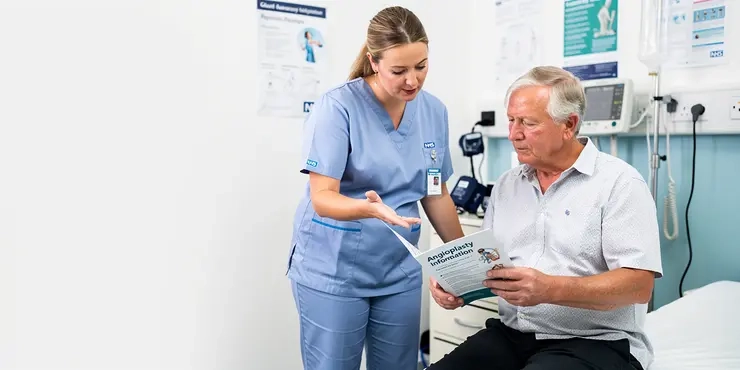
Before Angioplasty
Relevance: 100%
-
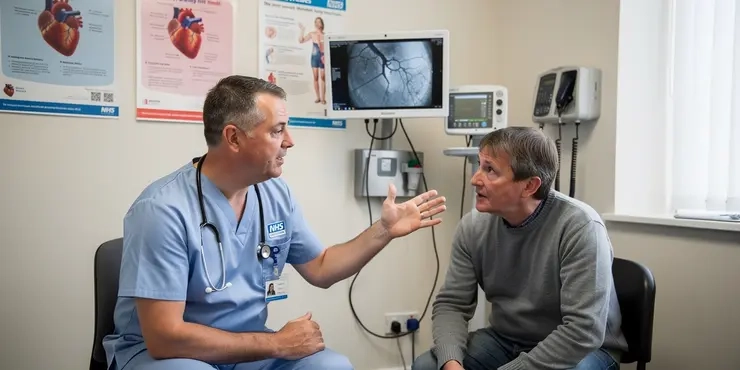
Intro to Angiograms, Angioplasty & Coronary Bypass Grafting
Relevance: 84%
-
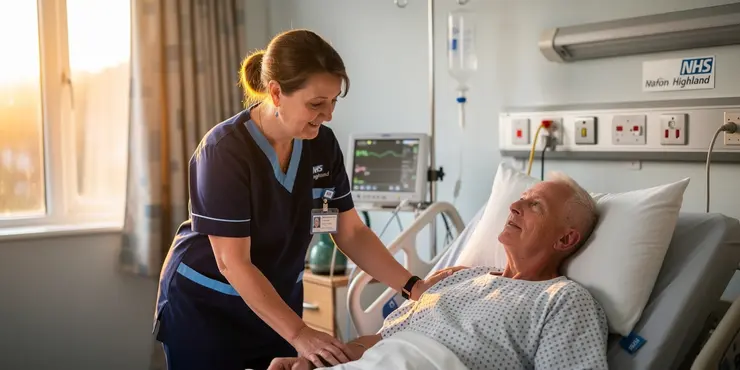
Heart attack care - Raigmore Hospital Inverness, NHS Highland
Relevance: 29%
-
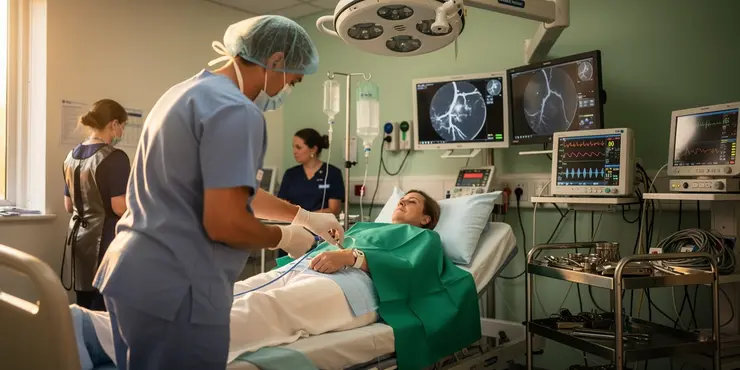
Heart stents
Relevance: 20%
-
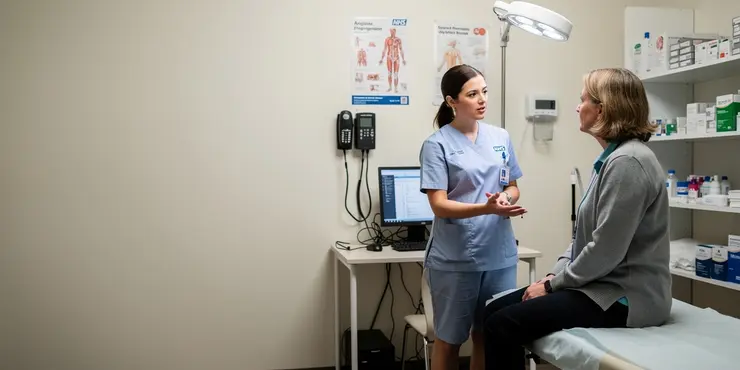
What is angina and how is it treated?
Relevance: 19%
-
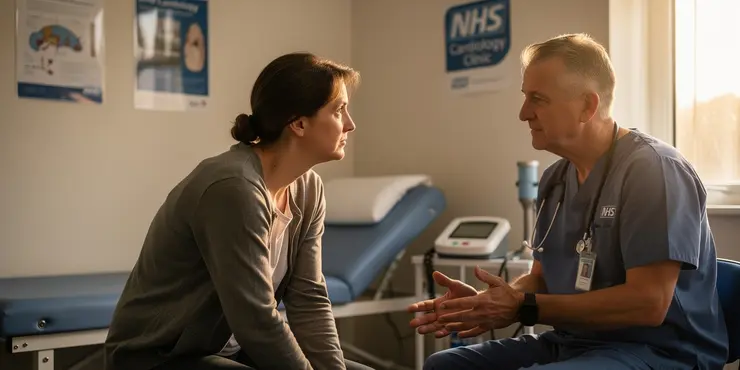
Coronary Bypass Grafting (CABG)
Relevance: 18%
-

Heart Attack Stories | NHS
Relevance: 6%
-

Will a heart bypass make me live longer?
Relevance: 6%
-
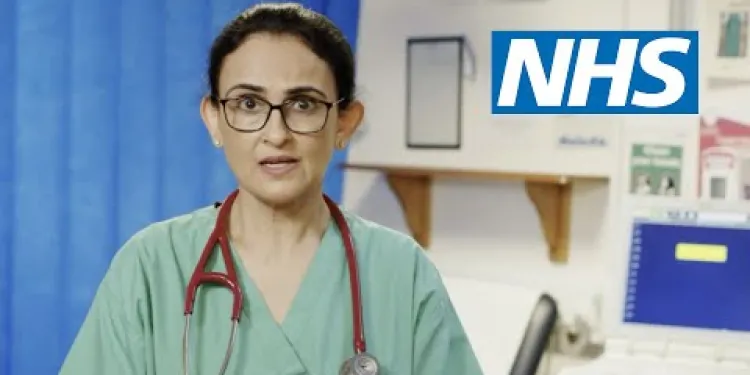
Heart Attack Stories | NHS
Relevance: 5%
-
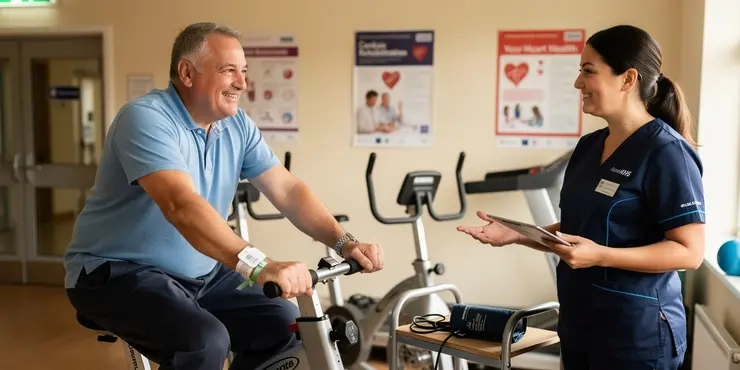
Cardiac Rehab
Relevance: 5%
Before Angioplasty: Essential Information for UK Patients
Understanding Angioplasty
Angioplasty, also known as percutaneous coronary intervention (PCI), is a medical procedure used to open up blocked or narrowed coronary arteries to improve blood flow to the heart. This procedure is commonly recommended for individuals who suffer from coronary artery disease, angina, or have experienced a heart attack. Understanding the process, preparation, and associated risks can help patients make informed decisions about their healthcare.Referral and Diagnosis
Before angioplasty is recommended, patients typically undergo a series of diagnostic tests. These may include an electrocardiogram (ECG), echocardiogram, stress test, and coronary angiography. Coronary angiography involves the use of contrast dye and X-ray imaging to visualize blockages in the coronary arteries. Based on the results, a cardiologist will determine whether angioplasty is the appropriate treatment.Preparing for the Procedure
In the lead-up to the angioplasty, patients will receive specific instructions from their healthcare provider. This may include fasting for several hours before the procedure and stopping certain medications that could increase bleeding risk. It's common practice to inform the medical team about any allergies, particularly to contrast dye or medications, as well as any existing medical conditions. Patients will also be advised to arrange transportation home, as they will not be able to drive post-procedure.Pre-Procedure Consultation
A pre-procedure consultation typically occurs a few days before the angioplasty. During this meeting, the cardiologist will explain the procedure in detail, including its benefits, risks, and potential complications. Patients are encouraged to ask questions and discuss any concerns they may have. Consent forms will need to be signed to confirm that the patient understands and agrees to the procedure.Hospital Admission
On the day of the procedure, patients will be admitted to the hospital. They will be given a hospital gown and may have an intravenous (IV) line inserted into their arm. The medical team will monitor vital signs, including blood pressure and heart rate. The angioplasty is usually performed in a cardiac catheterization laboratory (cath lab), where advanced imaging equipment is available.Mental and Emotional Preparation
Undergoing angioplasty can be a source of anxiety for many patients. It's beneficial to engage in relaxation techniques such as deep breathing exercises or meditation leading up to the procedure. Bringing a family member or friend for support on the day of the procedure can also help alleviate stress.Conclusion
Being well-prepared for angioplasty involves understanding the procedure, following pre-procedure instructions, and addressing any concerns with the healthcare team. In the United Kingdom, the NHS provides extensive resources and support to guide patients through this experience. With the right information and preparation, patients can approach their angioplasty with greater confidence and peace of mind.Before Angioplasty: Important Information for UK Patients
What is Angioplasty?
Angioplasty is a medical procedure that helps open up blocked or narrow heart arteries. This helps more blood to flow to the heart. It is often used for people who have heart problems. It is important to know what happens during this procedure and what to expect.Tests Before Angioplasty
Before you get angioplasty, doctors do some tests to check your heart. These may include: - A heart test called an ECG. - A sound test called an echocardiogram. - A stress test to see how your heart works when you exercise. - A special X-ray called coronary angiography to look at your heart's arteries. The doctor will use these tests to decide if you need angioplasty.Getting Ready for Angioplasty
Before the angioplasty, you will get some instructions from your doctor. You might need to: - Not eat or drink for a few hours before the procedure. - Stop taking some medicines that could make bleeding more likely. Tell your doctor if you have any allergies, especially to dyes or medicines. Also, arrange for someone to take you home because you can't drive after the procedure.Meeting With the Doctor
Before the procedure, you will meet with the doctor. They will explain what will happen and what to expect. You can ask any questions you have. You will also sign a paper to show you agree to the procedure.Going to the Hospital
On the day of the procedure, you will go to the hospital. You will wear a hospital gown and might have a small tube put in your arm. The medical team will check your blood pressure and heart rate. The angioplasty is done in a special room with equipment to see inside your heart.Feeling Ready
You might feel worried about the angioplasty. Try to relax by doing deep breathing exercises or meditating. It can also help to bring a friend or family member with you on the day.Final Thoughts
Being ready for angioplasty means knowing what will happen and following your doctor's advice. The NHS in the UK can help with information and support. With the right preparation, you can feel more confident about your angioplasty.Frequently Asked Questions
What is angioplasty?
Angioplasty is a medical procedure used to widen narrowed or blocked blood vessels, typically in the heart, to improve blood flow.
Why might I need an angioplasty?
You might need an angioplasty if you have blocked or narrowed arteries that are causing symptoms like chest pain or shortness of breath, or if you're at risk for a heart attack.
How should I prepare for an angioplasty?
Your doctor will give you specific instructions, but generally, you may need to fast for several hours before the procedure and inform your doctor about any medications you're taking.
Can I take my medications before the procedure?
You should inform your doctor about all your medications. They will advise you on which ones to continue or discontinue before the procedure.
Will I be awake during the angioplasty?
Yes, you will be awake but sedated. You will receive local anaesthesia to numb the area where the catheter will be inserted.
How long does the procedure take?
The angioplasty procedure typically takes between 30 minutes to two hours, depending on the complexity.
What are the risks of angioplasty?
While generally safe, risks can include bleeding, blood clots, artery damage, heart attack, or stroke. Your doctor will discuss these risks with you.
Will I feel any pain during the angioplasty?
You should not feel significant pain due to the local anaesthesia and sedative medications, though you may feel some pressure or mild discomfort.
Can I eat or drink before the angioplasty?
You will generally be asked not to eat or drink anything for a specific period before the procedure, usually starting from midnight if your procedure is in the morning.
What should I bring to the hospital?
Bring your personal identification, any previous medical records, a list of your medications, and any personal items you might need if you have to stay overnight.
How soon can I go home after the angioplasty?
You may be able to go home the same day or might need to stay overnight for observation, depending on your specific situation and recovery.
Will I need someone to drive me home after the procedure?
Yes, it is recommended to have someone drive you home, as you may be groggy from sedation and unable to drive safely.
What lifestyle changes might I need to make after an angioplasty?
Lifestyle changes may include quitting smoking, eating a heart-healthy diet, regular exercise, and adhering to your medication plan to prevent further artery blockage.
Will I need any follow-up appointments?
Yes, you will need follow-up appointments to monitor your recovery and the success of the angioplasty. Your doctor will advise you on the schedule.
Is angioplasty covered by the NHS?
Yes, angioplasty is typically covered by the NHS if it's deemed medically necessary. Private health insurance may also cover the procedure.
What is angioplasty?
Angioplasty is a treatment to help people with heart problems. It opens up blood vessels that are too narrow. This helps more blood flow to the heart.
If you want to understand more, you can ask a doctor. They can use pictures or models to show you how it works.
Angioplasty is a medical treatment. It helps to make narrow or blocked blood vessels wider. This usually happens in the heart. Angioplasty makes it easier for blood to flow.
Why would I need an angioplasty?
An angioplasty is a treatment to help your heart. It helps blood flow better. Sometimes, blood can't flow well because of narrow or blocked vessels. This treatment can open them up.
Here are some reasons why you might need an angioplasty:
- If your chest hurts because of blocked blood vessels.
- If you feel breathless or tired because your heart is not getting enough blood.
- If your doctor says your heart needs it after a heart test.
To help understand more, you can:
- Talk to your doctor or nurse. Ask them to explain.
- Look at pictures or videos about angioplasty.
- Use simple words and drawings to help you learn.
You might need a special treatment called angioplasty if your blood vessels are blocked or too narrow. This can make your chest hurt or make it hard for you to breathe. It's also done to help stop a heart attack.
Getting Ready for Angioplasty
Here are some steps to help you get ready for an angioplasty:
- Talk to your doctor about what will happen during the procedure.
- Make a list of any questions you have to ask your doctor.
- Tell your doctor about any medicines you take.
- Ask if you need to stop eating or drinking before the procedure.
- Ask someone you trust to go with you for support.
Using a picture book or video about hospitals can help you understand what to expect.
Your doctor will tell you exactly what to do, but here are some common steps:
You might need to stop eating and drinking a few hours before the test. This is called fasting.
Tell your doctor about any medicine you are taking.
If you find any words tricky, ask someone to help you understand. You can also use apps or tools that read the text out loud.
Can I take my medicine before the test?
Ask your doctor or nurse if you can take your medicine before the test. They will tell you what is safe to do.
Use a calendar or set alarms on your phone to remind you about your medicine.
Tell your doctor about all the medicines you take. Your doctor will tell you which ones to keep taking or stop before the procedure.
Will I be awake during the angioplasty?
Will I be awake when I have the angioplasty?
An angioplasty is a simple operation to help your heart. You do not sleep during the operation. A doctor gives you a special medicine. This medicine makes you feel very relaxed and calm.
If you feel worried, you can bring a favorite toy or book for comfort. It's okay to ask questions to the doctor or nurse. You can write down your questions if that helps. Friends or family can also help you feel better by talking to you.
Yes, you will be awake but very relaxed. You will get a special medicine to make the area where the tube goes in numb and not hurt.
How long does it take?
The procedure does not take too long.
It usually takes a short time.
To help understand time, use a timer or watch.
An angioplasty is a medical procedure. It usually takes 30 minutes to 2 hours. The time depends on how hard it is.
What are the dangers of angioplasty?
Angioplasty is a medical test to help the heart. But, like all tests, it has some things that might go wrong.
- Bleeding: Sometimes, blood might come out more than usual.
- Infection: The body might get germs that make it sick.
- Allergic reaction: The body might not like the medicine used.
- Heart problems: The heart might feel funny or hurt.
- Blood clots: Thick blood can make problems inside the body.
If you or someone you know is going to have angioplasty, talk to the doctor and ask questions. Use pictures and videos to understand better. Bring a friend or family to help you remember things. It's good to know what will happen and feel safe.
This is usually safe. But there are some risks. You might bleed, get blood clots, or hurt an artery. You could have a heart attack or a stroke. Your doctor will talk to you about these risks.
Will it hurt when I have angioplasty?
Angioplasty is a medical test that helps your heart. You might feel a little bit of pressure, but it should not hurt.
If you do feel pain, tell the doctor or nurse. They can help make you comfortable.
You can use tools like:
- A comfort blanket or toy
- Calming music
- Breathing exercises
You won’t feel much pain because of medicine that helps numb the area and keeps you calm. You might feel a little pressure or a bit uncomfortable.
Can I eat or drink before the angioplasty?
Before your angioplasty, you should not eat or drink anything. This is very important. Eating or drinking can make the procedure unsafe.
A few tips can help you remember:
- Ask someone to remind you not to eat or drink.
- Put a note on the fridge saying "No eating or drinking!"
- Set a reminder on your phone.
If you are unsure, ask your doctor or nurse for advice. They are there to help you.
Before your procedure, you might be told not to eat or drink. This usually starts the night before if your procedure is in the morning.
What to Take to the Hospital
Here is a list of things you can bring:
- Clothes: Bring pajamas, underwear, and a robe.
- Toothbrush and toothpaste to clean your teeth.
- Brush or comb for your hair.
- Books or toys to keep you busy.
- Your favorite blanket or pillow for comfort.
- Any medicines you take every day.
You can use a checklist to make sure you remember everything. Ask someone to help you pack if you need it.
Bring your ID, old medical papers, a list of your medicines, and things you need if you stay the night.
When can I go home after the heart procedure?
After your heart procedure, you might want to know when you can go home. Here's what to expect:
You might stay in the hospital for a few hours or overnight. It depends on how you feel. Your doctor will tell you when it is safe to leave.
Make sure you have someone to drive you home. You could also use a taxi or car service. Ask a friend or family member to help you with this.
Remember to ask the doctor if you have questions. You can write down your questions to help you remember. Use pictures or notes if that helps you understand better.
You might go home the same day. But sometimes, you need to stay the night so doctors can check you are okay. This depends on how you are feeling and getting better.
Do I need help getting home after the treatment?
Yes, you will need someone to take you home. It is important because you might feel sleepy or dizzy. Ask a friend or a family member to help.
If you need help asking for a ride, you can use a phone or write a note. You can also use apps like reminders or calendars to plan.
Yes, it is a good idea to have someone drive you home. You might feel sleepy from the medicine and not be able to drive safely.
What changes should I make after my heart treatment?
After your heart treatment, you may need to make some changes to stay healthy. Here are some tips:
- Eat Healthy: Try to eat more fruits and veggies. Avoid foods with a lot of salt, fat, or sugar.
- Exercise: Move your body every day. This could be a walk, a bike ride, or dancing.
- Don't Smoke: Smoking can hurt your heart, so it's best to quit.
- Take Medicine: Listen to your doctor and take your medicine every day.
- Keep Calm: Try to stay relaxed and stress-free. Maybe practice deep breathing or gentle yoga.
- Visit the Doctor: Go for regular check-ups to make sure your heart is healthy.
If you find reading hard, ask someone you trust to read with you. You can also use tools that read aloud to you, like a phone or computer app.
You can make your life better by:
- Stopping smoking.
- Eating healthy food for your heart.
- Doing exercise often.
- Taking your medicine as the doctor tells you.
These things can help keep your arteries clear.
Do I need to come back for another visit?
Yes, you will need to visit the doctor again to check how you are getting better and if the angioplasty worked well. Your doctor will tell you when to come back.
Does the NHS pay for angioplasty?
The NHS can pay for a treatment called angioplasty. This treatment helps your heart work better.
If you need help reading words or understanding this, ask a friend or family member. You can also talk to your doctor or nurse.
Yes, the NHS usually pays for angioplasty if you need it for your health. Private health insurance might pay too.
Useful Links
This website offers general information and is not a substitute for professional advice.
Always seek guidance from qualified professionals.
If you have any medical concerns or need urgent help, contact a healthcare professional or emergency services immediately.
Some of this content was generated with AI assistance. We’ve done our best to keep it accurate, helpful, and human-friendly.
- Ergsy carfully checks the information in the videos we provide here.
- Videos shown by Youtube after a video has completed, have NOT been reviewed by ERGSY.
- To view, click the arrow in centre of video.
- Most of the videos you find here will have subtitles and/or closed captions available.
- You may need to turn these on, and choose your preferred language.
- Go to the video you'd like to watch.
- If closed captions (CC) are available, settings will be visible on the bottom right of the video player.
- To turn on Captions, click settings .
- To turn off Captions, click settings again.
More Items From Ergsy search
-

Before Angioplasty
Relevance: 100%
-

Intro to Angiograms, Angioplasty & Coronary Bypass Grafting
Relevance: 84%
-

Heart attack care - Raigmore Hospital Inverness, NHS Highland
Relevance: 29%
-

Heart stents
Relevance: 20%
-

What is angina and how is it treated?
Relevance: 19%
-

Coronary Bypass Grafting (CABG)
Relevance: 18%
-

Heart Attack Stories | NHS
Relevance: 6%
-

Will a heart bypass make me live longer?
Relevance: 6%
-

Heart Attack Stories | NHS
Relevance: 5%
-

Cardiac Rehab
Relevance: 5%

